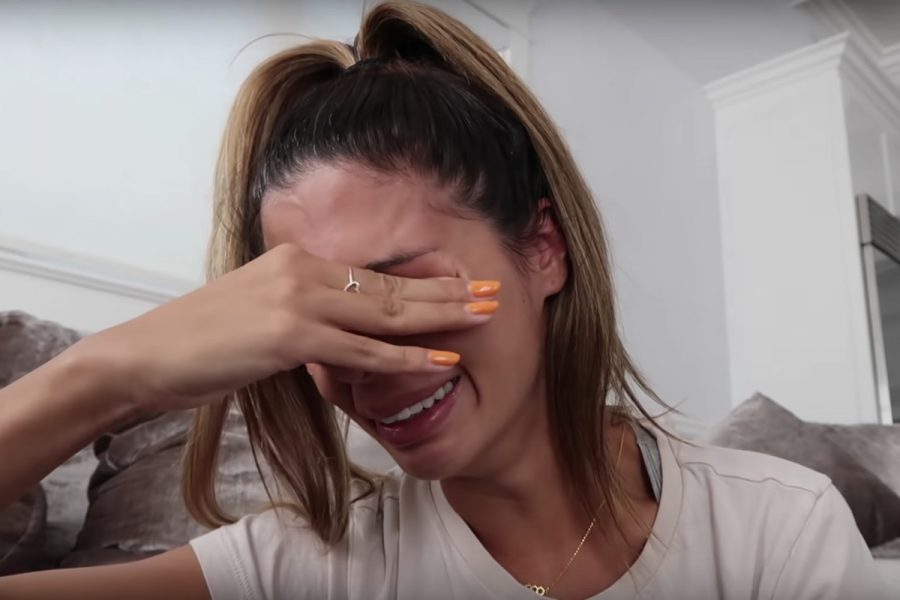That’s a Yes for Cancel Culture
Laura Lee was justifiably canceled on all forms of social media due to resurfaced racist tweets of hers back in 2012.
March 26, 2019
It takes less than a sentence on Twitter to get an entire wave of fans to dump a celebrity- in a flash of a second. Cancel culture, to put it simply, is a method of dealing with a particular person (most often times celebrities) when they have outwardly displayed either present or past signs of things like racism, xenophobia, transphobia, homophobia, and the like.
Most commonly detected on the Twitter scene, numerous celebrities have had either their careers ruined or reputations tarnished due to unwise and uneducated words that come from the tips of their fingers and onto a platform that allows millions to read it.
Heated debate has traveled between the different media platforms in regards to what makes a valid reason to “cancel” a celebrity. Some believe it has to do with the actual content that the influencer puts out, and others believe its the actual time period in which they posted it. For example, a new breakout has turned up among fans of Shane Dawson, who, in a podcast, mentioned a joke about having forced sexual relations with his cat. As strange as this statement may be, many disturbed viewers have decided to cancel Dawson and permanently unsubscribe to his YouTube channel.
Others complain about the people who are responsible for bringing this old source back from the archives, seeing as though his words were vocalized over 4 years ago. In truth, what Shane Dawson said was not in any way appropriate for a podcast targeting younger audiences. Polly Bowman (11) says, “What Shane Dawson said was wrong and should not in any way be disregarded by anyone, but I feel like ‘canceling’ him may be a bit too far. What he said was absolutely disgusting, but he said it in a time where things were way different, so I think we should definitely be cautious of him but coming to conclusions so quickly is unnecessary.”
When similar situations to this arise on social media, there’s always a group of fans who urge to meet in the middle, who usually say that rather than call the celebrity out harshly for their words, take the chance to educate them. Frances Lee (11) vocalizes her opinions by saying “Celebrities should be aware of the effects their words might have on other people before they blurt them out. People need to stop defending influencers all the time, because most of them are already adults when they publish problematic things to the internet. If an influencer is like 24 and says something problematic or discriminatory, cancel them.”
Laura Lee, another YouTube influencer, has recently gone through a scandal in which her racist tweets back from 2012 diminished her prominent standing in the YouTube community almost completely.
In August of 2018, Lee’s old tweets began to resurface from the depths of Twitter. One in particular can be denounced as the cause of her downfall. In the tweet, Lee writes “tip for all black people if you pull ur pants up you can run from the police faster.. #yourwelcome” (The Washington Post). It has been said that Lee also allegedly posted fat-shaming tweets a year later in 2013, but this fact is yet to become concrete in actuality.
Laura Lee was born on September 1st, 1988, making her 24 in 2012 and consequently 25 in 2013. There is no valid excuse for her racist comments. Any 24 or 25 year old should have enough morals to comprehend that especially from a person with a large and relatively young following, these words should not simply be shrugged off.
Many believe cancel culture is this cruel concept of ruining the careers of celebrities and social media influencers alike, but in actuality the idea of the cancel culture trend is to illustrate the unacceptable antics of big name influencers to the general public. In order to set a standard for the upcoming generation and correct the wrongdoings of many, cancel culture was created for that exact purpose.
Numerous times in the past has history painted this brutal picture of change happening all at once. In order for a great change to take place, it must happen all at once. And in terms of making the general society more aware and careful of their words, especially in these sensitive times of social-political awareness, cancel culture is the way to do it.






































